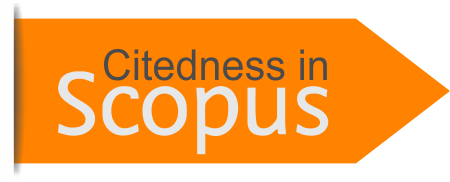AZAS PEMBUKTIAN TERBALIK DALAM SENGKETA PENJAMINAN PENGEMBALIAN MODAL PEMBIAYAAN MUDHARABAH, MUSYARAKAH DAN WAKALAH BIL ISTITSMAR
Abstract
Abstract
The principle of reversed proof (omreking van het bewijslast) in the DSN Fatwa No. 105/DSN-MUI/X/2016 concerning guaranteeing the return of capital for the financing of mudharabah, musyarakah and wakalah bil istitsmar is the new norm in the legal framework of sharia economic procedures. This study aims to find the ratio legis of the existence of an inverted evidentiary norm in the DSN fatwa No. 105/DSN-MUI/X/2016. This type of research is normative law with a descriptive-comparative approach by describing all legal materials and comparing them with the reverse proof norm in the Consumer Protection Act. The results of the study indicate that the legal reason for the reverse evidence in the DSN fatwa is because the capital manager is a more active and knowledgeable party in developing the business so that he has absolute responsibility (strict liability) for all errors and omissions in managing the project being carried out.
Abstrak
Asas pembuktian terbalik (omreking van het bewijslast) dalam Fatwa DSN No 105/DSN-MUI/X/2016 tentang penjaminan pengembalian modal pembiayaan mudharabah, musyarakah dan wakalah bil istitsmar merupakan norma baru dalam kerangka hukum acara ekonomi syariah. Penelitian ini bertujuan untuk menemukan ratio legis adanya norma pembuktian terbalik dalam fatwa DSN No 105/DSN-MUI/X/2016. Jenis Penelitian ini bersifat normatif law dengan pendekatan deskriptif-komparatif dengan memaparkan seluruh bahan hukum dan membandingkannya dengan norma pembuktian terbalik dalam Undang-Undang Perlindungan Konsumen. Hasil penelitian menunjukkan bahwa alasan hukum pembuktian terbalik dalam fatwa DSN ini karena pengelola modal merupakan pihak yang lebih aktif dan mengetahui dalam mengembangkan bisnis sehingga memiliki tanggungjawab mutlak (strict liability) atas segala kesalahan dan kelalaian dalam mengelola projek yang dijalankan.
Copyright (c) 2022 Mardi Candra Mardi

This work is licensed under a Creative Commons Attribution 4.0 International License.
Authors who publish with this journal agree to the following terms:
- Authors retain copyright and grant the journal right of first publication with the work simultaneously licensed under a Creative Commons Attribution License that allows others to share the work with an acknowledgement of the work's authorship and initial publication in this journal.
- Authors are able to enter into separate, additional contractual arrangements for the non-exclusive distribution of the journal's published version of the work (e.g., post it to an institutional repository or publish it in a book), with an acknowledgement of its initial publication in this journal.
- Authors are permitted and encouraged to post their work online (e.g., in institutional repositories or on their website) prior to and during the submission process, as it can lead to productive exchanges, as well as earlier and greater citation of published work.





















